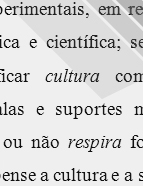

................................
The political-military autonomy of the medieval Kingdom, vassalage and belief in common ancestry ("lusitana," Garcia de Resende) are invoked from the historiography of the 19th century, in the Latin, Visigothic and Suevic origin (S. Silva Pinto, G. Azevedo); and, with Herculano, in the municipal and Mozarabic resistance to Islam; and with O. Martins, T. Braga (Mozarabism, "traditional lyricism"), in the Celtic acculturation of primitive northern (A. Sampaio) and southern (A. Sardinha) cultures. In Martins' view, "the names of the places, people, and deities of Lusitania seemed to have Celtic roots, and this was the origin of the Portuguese genius, in terms of its 'vague and elusive' quality; in Lusitanian heroism, what it revealed of 'nobility'; in "our letters or thought, a deep or sentimental, ironic or gentle tone" as opposed to the 'affirmative character'; to the 'fury,' and the specific characteristics of Castilian civilisation, which, unlike the Portuguese, would be 'violent without depth'" (História de Portugal, 1879, evoked by Mattoso, A Identidade nacional, 1998). To the factors of common identity, forged in violent "cultural policies" (Expansion, Inquisition, Index prohibitorum)—Catholics (most faithful kingdom); Europeans and cosmopolitans (more "worldly" than "continental": it was easier to get to Goa than to Braga, according to Gorani in the 18th century); the strong Hispanic attraction of letters felt between the siglo de oro and the 17th century)— united variables that distinguish rural and regional identities, small homelands in the Ancien Régime: Between Douro and Minho, of very fruitful propagation, the Transmontana forge; Beiras, the estates of the rural nobility and letters in Coimbra; the commercial and agricultural South of the Tagus and the maritime emporium of Lisbon defining Estremadura, Alentejo to be conquered, the industrious Algarve, the wandering Islands between the old and new World. Refractions of Volksgeist, the Herderian "spirit of the people," as objects of scholarly discourses, mythical syntaxes of fixed identities in a closed circuit, as explained by Sousa Santos ("11/92...", Via Latina, 1991, p. 58), "are the general ideas of a country without a philosophical or scientific tradition. The mythical excess of interpretation is the compensatory mechanism for the lack of reality typical of restricted cultural elites, closed (and marginalised) in the brilliance of their ideas."
